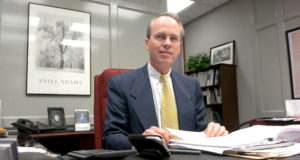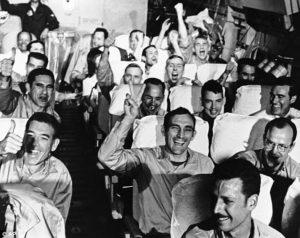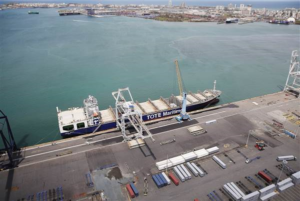They came on a rainy evening to honor a man who’s given four decades of his life to public service.
I was one of the hundreds of Amarillo residents who flocked tonight to a brand new hotel downtown to honor Gary Pitner. I didn’t get too much face time with my friend, as he was pretty busy schmoozing with a lot of others in the reception room.
But I do want to write a few good words about this fellow I’ve known almost from Day One upon my arrival around the corner from his office. In January 1995 I came to work as editorial page editor of the Amarillo Globe-News. Almost immediately I came to know the executive director of the Panhandle Regional Planning Commission. That would be Pitner.
The PRPC is a bit of a mystery to a lot of folks. Its duties include coordinating a whole array of issues involving communities throughout the 26 counties that comprise the Texas Panhandle. Pitner has worked as head of PRPC for 32 of his 40 years in local government.
So, why the big outpouring of affection, respect and admiration for this fellow who’s retiring from his lengthy career that sought to make our communities better? It’s because he was so good at it. Moreover, he became the go-to guy years ago when it came to Amarillo’s future growth issues.
There was some discussion this evening at the Embassy Suites hotel, where the retirement reception took place, that Pitner’s presence at PRPC positioned him to become a huge player in the downtown Amarillo planning. He became a voice of wisdom and knowledge; some have suggested he became the voice of all that.
Pitner never would presume to know all there is to know. I’ll say what he won’t say about himself: He knows a lot about this city’s history and how it arrived in the present day. He also is able to offer knowledgeable analysis about where he believes the city is heading and how it ought to get to the finish line.
I’m happy for my friend that he’s entering this next phase of his life. He’s still a young man and has much to offer anyone who’s looking for knowledge about local government.
He stood up to his armpits in downtown planning, in water conservation, in urban growth planning, in reasonable land use. He became a valuable resource for municipal, county and state officials who were looking for a strong base of knowledge about Amarillo and the Panhandle.
Pitner possesses all of that.
I am proud to have known him professionally and am proud to call him a friend. I did manage to speak a fundamental truth to Pitner this evening during my too-brief visit with him.
“There are damn few people I would drive all the way downtown in this hideous weather to pay respects to at an event like this,” I told him. Pitner laughed.
Go ahead and laugh, Gary. But here’s the deal: I wasn’t kidding.









